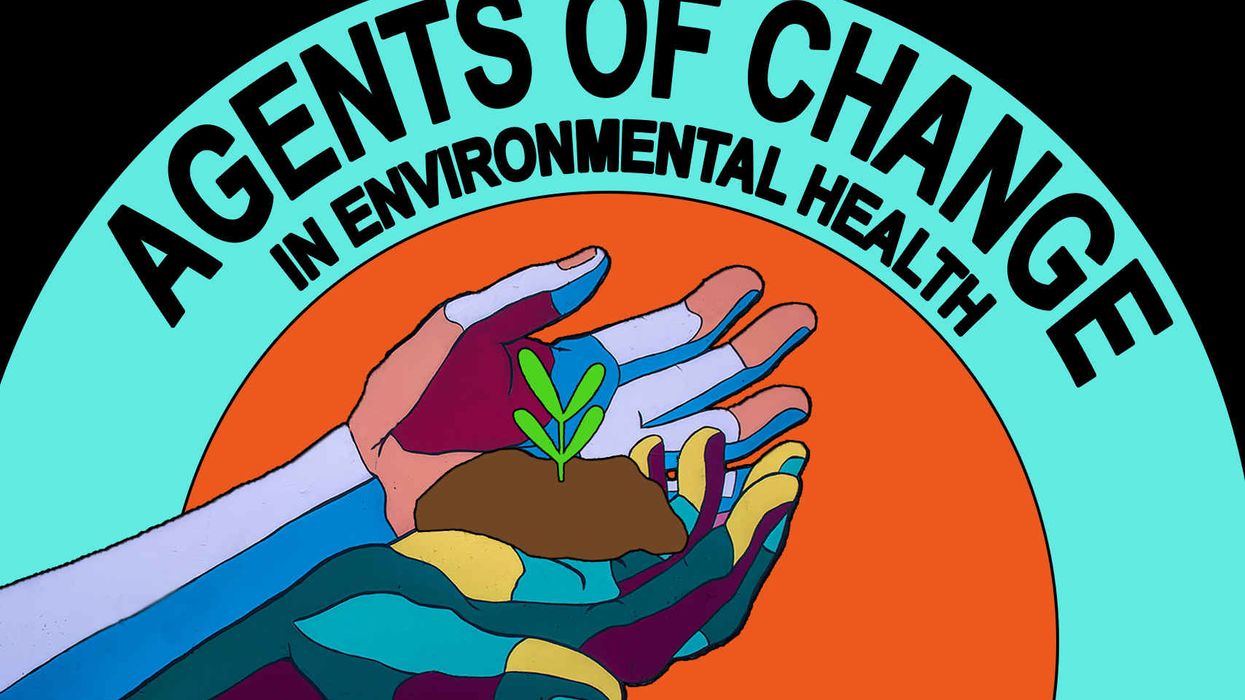
As editor of EHN, I’ve long sought out reporters who can tell stories of environmental injustice and scientists who can put it into context.
This year those worlds merged with our Agents of Change series.
The fellows from across the country wrote essays that challenged how we house, teach, treat, and feed people. They wove research with personal storytelling and, as researchers who all come from historically under-represented backgrounds in science, they offered a perspective often ignored or missing.
They forced me to think about the ways we talk about research, who gets to do the talking, and some of the deep-rooted inequities in the field of environmental health—including lack of diversity in study cohorts; a narrow view of what constitutes an environmental insult; and a neglect to use research to better the communities being studied.
“Sci-comm” is having a moment. Researchers have more platforms than ever to communicate their work beyond esoteric peer-reviewed journals.
But what will we make of this moment? Will we expand which voices we listen to and elevate?
What Agents of Change made clear to me—whether I was editing essays or just hanging out on Zoom with these inspiring fellows—is that research and science communication at their best are diverse and community-minded. For too long scientists—much like journalists—have been encouraged to get in line, put your head down, and seek and report facts.
But behind facts are people with stories and families. It’s Vietnamese neighborhoods in Dorchester, Mass., organizing to fight discriminatory housing policies. It’s Black farmers in West Philadelphia growing healthy food for their neighbors.
These fellows’ essays blended their lived experience, their research, and environmental impacts on real people in real communities. They didn’t hide behind the science, rather they asserted their position in their science.
This is the future of science communication.

Ahead of the curve
When we started Agents of Change with Ami Zota, an associate professor of Environmental and Occupational Health at The George Washington University Milken Institute School of Public Health, the world was a different place.
The COVID-19 pandemic and protests following the police killing of George Floyd, Breonna Taylor and others have upended the U.S.
But these fellows were ahead of the curve.
- Ans Irfan was thinking about farmworker health and workers’ justice before COVID-19 swept through meat plants and migrant communities;
- Brianna VanNoy’s essay on disparities in health research was in the works before we saw the pandemic batter communities of color;
- Max Aung questioned the impact of energy production on community health before the oil and gas market were turned upside down;
- El’gin Avila and Mỹ Dzung Chu outlined discriminatory and racist housing policies before the economic collapse and its squeeze on housing security;
- Deniss Martinez wrote of returning to Indigenous wildfire practices as wildfires just started to rip through the Western U.S;
- And Ashley Gripper wrote of Black food sovereignty before the whole country was forced to reckon with the systemic racism baked into our institutions.
There’s a lesson here—fellows saw these issues bubbling up in the communities they live and conduct research in. They didn’t need a rampant virus or videoed police brutality to understand inequality.
Kern County, California, is not a “subject” for Max, it’s home.
The lack of Black representation in environmental health studies isn’t just a field of study for Brianna—it’s a reality with life and death consequences.

New communities
I’ve seen these essays reach new readers and communities for EHN. We’ve tapped into a community of like-minded early-career scientists of color who finally see writings from other scientists of color, who are writing in a bold manner about science and injustice.
Leaders from varied backgrounds who, yes, want to talk science, but also want to talk about injustice and racism; people who value the institutions where they work and research, but are not afraid to challenge out-of-date mindsets, harmful hierarchies, and baked-in biases.
There will undoubtedly be a radical shakeup of what environmental health science and advocacy looks like after the storm our country is in.
One thing is certain moving forward—business as usual doesn’t work and we’ve found a lot of next generation leaders with ideas who are ready to shake the status quo.
“Public health is all about people”
We are not done—our Agents of Change fellows will move on but we’re looking for a new group of fellows for the fall. There are simply too many voices going unheard and we want to amplify those worth hearing.
Whether it’s policymakers or young children thinking about what they want to be when they grow up, we need to remember that scientists are more than wire-haired old guys in laboratories.
They come from all backgrounds, they are our neighbors, and they help us make sense of our world and provide evidence for us to do and be better.
I’m proud to have met and spent time with these fellows and I look forward to watching their careers grow. The future is in good hands.
I hope their stories continue to inspire and shine a light on both the problems and opportunities in environmental health research. As Brianna VanNoy said, “after all, public health is all about people, and the health of millions depends on our action.”
Brian Bienkowski is the senior editor at Environmental Health News and editor of the Agents of Change series, a collaboration with The George Washington University Milken Institute School of Public Health—supported by funding from the Marisla Foundation—to provide a space for the environmental health leaders of tomorrow to explore the intersection of research, health, diversity and justice.
Follow Agents of Change on Twitter and Instagram and for more information join a July 30 webinar from the Collaborative on Health and the Environment (CHE) for a Q&A discussion featuring four of the fellows.
To help support the Agents of Change initiative please contact Brian Bienkowski or Ami Zota.
Banner graphic credit: Raya Hudhud





